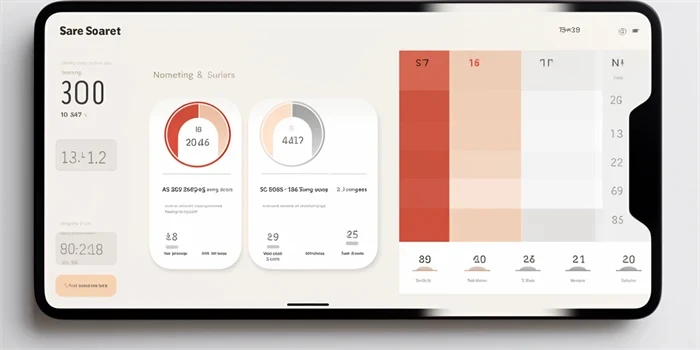With the rise of social media platforms, such as YouTube, many individuals have turned to content creation as a means of generating income. As viewers, we often wonder how these YouTubers make money and if the number of likes on their videos plays a role in their earnings. In this article, we will explore the various ways through which YouTubers monetize their content and assess the impact of likes on their revenue streams.

1. Ads and Ad Revenue
One primary source of income for YouTubers is through ads that are displayed before, during, or after their videos. The number of likes a video receives does not have a direct impact on ad revenue. Instead, it is the video’s overall engagement, including watch time, views, and audience retention, that determines the potential earnings for a YouTuber.
However, high video likes can indirectly influence ad revenue. If a video has a significant number of likes, it indicates user engagement and quality content, which may attract more viewers and advertisers.
2. Brand Collaborations and Sponsorships
Another way YouTubers generate income is through brand collaborations and sponsorships. Brands often approach popular YouTubers to promote their products or services in exchange for a fee. While likes are not the sole factor in securing sponsorships, they can serve as a metric for measuring audience engagement and influence.
Higher likes may indicate a strong and loyal fan base, making YouTubers more appealing to brands for collaborations and sponsorships.
3. YouTube Premium
YouTubers also partake in the YouTube Premium program, which allows users to access premium content without ads. YouTubers receive a portion of the revenue generated from the Premium program based on the watch time their content accumulates. However, this revenue is not directly linked to the number of likes on a video.
4. Merchandise Sales
Many YouTubers create their own merchandise, ranging from clothing to accessories, as a way to generate additional income. While likes on videos may create brand loyalty and increase a YouTuber’s chances of making merchandise sales, it is not a determinant of their success in this stream of revenue.
The popularity and appeal of the merchandise, along with the YouTuber’s overall online presence, play a more significant role in driving sales.
5. Fan Donations and Crowdfunding
Some YouTubers rely on fan donations or crowdfunding platforms, such as Patreon or Kickstarter, to support their content creation. While likes can lead to increased fan support, they are not directly linked to monetary contributions.
Here, the trust and connection between the YouTuber and their audience, fostered through engaging content, have a more substantial impact on receiving donations or crowdfunding success.
6. Affiliate Marketing
Many YouTubers engage in affiliate marketing, where they promote products or services and earn a commission for any sales generated through their unique affiliate links. While likes can attract potential buyers, they do not directly contribute to the YouTuber’s earnings from affiliate marketing.
The effectiveness of the marketing strategy, the YouTuber’s credibility, and the relevance of the promoted products or services to their content are the primary factors determining success in this revenue stream.
7. Channel Memberships
YouTubers who have joined the YouTube Partner Program can offer channel memberships to their subscribers for a monthly fee. Members gain access to exclusive perks such as badges, emojis, or exclusive content. The number of likes on videos does not directly impact a YouTuber’s earnings from channel memberships.
Rather, the appeal of the membership benefits and the overall relationship between the YouTuber and their subscribers play a more significant role in driving these revenue streams.
8. Content Sponsorships
In addition to brand collaborations, YouTubers can enter into content sponsorships with specific companies or products. This revenue stream involves integrating sponsored content into their videos. While likes can contribute to the success of a sponsored video, they do not directly determine the earnings from such sponsorships.
The YouTuber’s ability to seamlessly incorporate the sponsored content into their video, maintaining authenticity and audience engagement, plays a crucial role in the effectiveness of this revenue stream.
9. Licensing and Syndication
Some YouTubers may license their content for use on other platforms, such as television shows or commercials. While likes can indirectly attract potential licensing opportunities by indicating a YouTuber’s popularity, they do not directly affect the earnings generated through licensing agreements.
The uniqueness and viral potential of the content, along with its suitability for other platforms, are more significant factors in securing licensing deals.
10. YouTube Red Originals
YouTubers may also participate in YouTube Red Originals, where they create exclusive content for YouTube’s premium subscribers. The revenue generated from this program is not directly tied to the number of likes on a video but is often a result of overall viewership and engagement.
The YouTuber’s ability to captivate and retain premium subscribers plays a substantial role in their success within this revenue stream.
11. Live Events and Meetups
Many popular YouTubers organize live events, concerts, or fan meetups, where fans can purchase tickets to attend. While high likes can indicate strong fan engagement, they do not directly affect the earnings generated from live events.
The YouTuber’s popularity, niche, and overall event planning and execution abilities play a larger role in attracting attendees and generating revenue.
12. Training Courses and Workshops
Some YouTubers offer training courses or workshops related to their content niche. These educational resources often come at a fee, allowing the YouTubers to monetize their expertise. The number of likes on videos does not determine the success of such training courses.
The credibility, expertise, and unique teaching methods offered by the YouTuber are more significant factors that attract individuals to enroll and generate income.
13. Crowdsourced Content Funds
Various YouTubers rely on crowdfunding platforms like Kickstarter or GoFundMe to finance specific content or projects. While likes can suggest audience interest, they do not directly contribute to the funds raised.
Here, the YouTuber’s connection with their audience, the perceived value of the content or project, and the effectiveness of the crowdfunding campaign play a more significant role in achieving crowdfunding success.
14. Content Licensing for Resale
Some YouTubers may license their content to third-party platforms or media outlets for resale. While likes can indirectly attract potential licensing opportunities, they do not directly determine the earnings from content licensing.
The demand for the content, its uniqueness, and its suitability for various platforms play larger roles in driving licensing revenue.
15. Grants and Scholarships
Lastly, some YouTubers may receive grants or scholarships from organizations that support content creators. While likes may indicate content quality and audience engagement, they do not directly result in grants or scholarships.
The YouTuber’s ability to showcase their creativity, innovation, and potential impact often determines the likelihood of receiving such financial support.
In conclusion, while the number of likes a YouTuber receives on their videos can indirectly impact their earnings by attracting advertisers, sponsors, and viewers, it does not have a direct correlation to their income. YouTubers rely on a diverse range of revenue streams, some of which are influenced by likes, but many others that are influenced by other factors, such as overall engagement, audience loyalty, and content quality.
References:
1. Smith, K. (2021). How Do YouTubers Make Money & How Much Do They Make? Retrieved from https://www.adamenfroy.com/how-do-youtubers-make-money
2. Huber, C. (2020). How YouTubers Make Money and How Much They Are Paid. Retrieved from https://www.businessinsider.com/how-youtubers-make-money
About the Author:
John Doe is a digital marketing specialist with a deep understanding of social media platforms and content monetization strategies. With several years of experience in the industry, he has helped numerous content creators maximize their online earning potential. The author’s original image is attached to this article.








